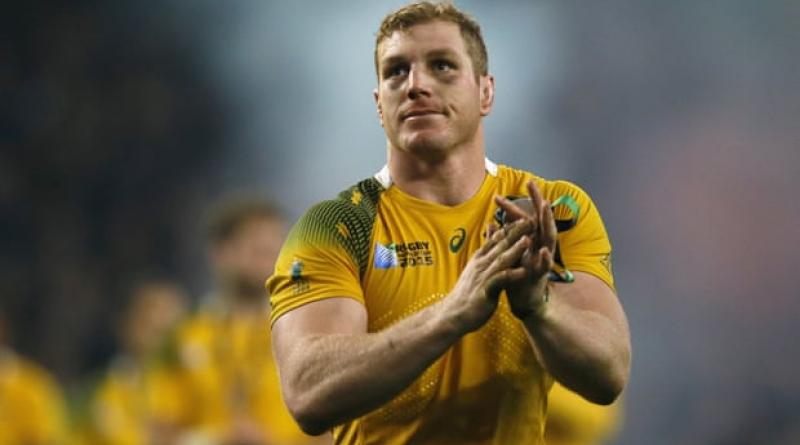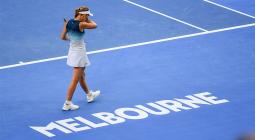David Pocock warns of devastating impact on sport if climate crisis inaction continues.

- We’re cooked,’ says Australian former rugby union star
- Pocock among other athletes to highlight global emergency
Wallabies great David Pocock has warned “we’re cooked” if the professional sporting world does not act on its moral obligation to combat the rapidly accelerating climate crisis.
The retired 83-Test Australian flanker and outspoken environmental activist is one of several high-profile athletes contributing to a new podcast examining the uneasy relationship between sport and climate change.
The eight-part series, called Emergency on Planet Sport, comes six months after a report estimated the global sporting industry produces carbon emissions equal to that of a medium-sized country and found almost all sports will face serious disruption from heatwaves, fires, floods and rising sea levels.
Pocock, speaking alongside retired Czech tennis player Lucie Safarova, Southampton midfielder Oriol Romeu and GB triathlon head coach Ben Bright, among others, implored athletes and administrators to take on the responsibility in leading change.
Pocock, speaking alongside retired Czech tennis player Lucie Safarova, Southampton midfielder Oriol Romeu and GB triathlon head coach Ben Bright, among others, implored athletes and administrators to take on the responsibility in leading change.
“I do think things are changing,” Pocock said. “When I got arrested in 2014 at a coal mining protest and went on to plead guilty, not having a conviction recorded, I was told ‘if you do anything like this again, we’ll tear up your contract’. I’m not sure if they could have done that but I think that is changing and that businesses and sports are understanding there is a role for them to play.
“Our futures are at stake, and if we don’t up our ambition and start to deal with this as the emergency the scientists are telling us it is, then we’re cooked. I think there’s some sort of moral obligation for everyone to be playing their role.
“Athletes speaking out about issues really does lead to important conversations among young people and who knows where that can lead. Many have dreamed of what they’ve been doing since they were kids and I think there’s a fear these other issues will somehow detract from their sport or take their concentration away or open them up to criticism. I’ve found it’s provided me with some balance. I know I’m engaged with issues which ultimately are a lot bigger than sport.”
The adverse effects of a heating planet are encapsulated each year at the Australian Open in Melbourne, where climate scientists say the tournament could become too dangerous to play in the peak of summer. Last year, at the height of Australia’s bushfire season, players struggled to breathe as winds blew in smoke and the air quality dropped to the worst in the world.
Even five years before that, Safarova could not ignore the sweltering heat. The 2015 French Open finalist and five-time grand slam doubles champion, who is part of the WTA’s sustainability program, said she experienced a lightbulb moment during her 2014 Australian Open third-round match with eventual champion Li Na.
“I vividly recall … I was sitting on the bench at the changeover, I feel my head burning and I know I’m red as a lobster and I just, exhausted, look in front of me and I see that little leaf, that black, burnt leaf falling on the tennis court. At that point I thought ‘this is insane. Are we really playing tennis in this weather, like right now? What am I doing here, this is not healthy.’
“It still feels like you’re playing in the sauna. We played through the middle of the day. It was 43 in the shade. On the court it was around 65. It’s concrete under you, concrete around you so there’s no escape from the brutal heat. Today is late already to say ‘OK, this is happening’. If we continue the trend we have right now the planet won’t be here as we know it very soon.”
21 January 2021
The Guardian





